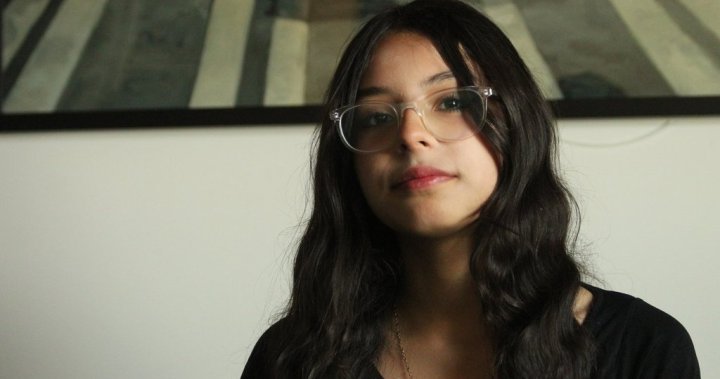Ariana Zapata’s favourite subject in school is social studies.
For the 13-year-old in Edmonton, this means lessons on historical societies, colonialism, how worldviews are developed and so on.
The eighth grader’s own worldview is still being built, but she has pillars in place: family, fight for what you believe in, don’t be too trusting and, critically, education is a right.
That’s why, when Zapata gets home from school every day, she passes on what she learned to her three younger siblings.
“That way when they go back to school, they won’t feel behind,” she said in a recent interview.
School bells haven’t applied to her brother and sisters in two years. They were kicked out of school when officials realized they were undocumented.
Zapata is undocumented, too, but said her school hasn’t figured that out yet.
Alberta isn’t unique in denying children without legal residency status from attending public school. Ontario is the only Canadian province or territory that legally requires schools to enrol undocumented children.
Zapata and her family, along with a coalition of non-profit advocacy groups, want Alberta to follow in Ontario’s footsteps.
Samantha Vaux, a social worker with an Edmonton-based group that works with undocumented families, said that by not doing so, Alberta is not fulfilling commitments made by signing the United Nations Convention of the Child in 1999.

Get daily National news
Get the day’s top news, political, economic, and current affairs headlines, delivered to your inbox once a day.
Originally ratified in 1990, the convention states signatories “shall” make “primary education compulsory and available free to all.”
“It’s not a privilege, it’s a right,” said Vaux, with the Islamic Family and Social Services Association. “The more those children are kept out of school, the more harmful it is not only to them, (but) to their family, the community, even our society.”
There’s no dependable estimate for how many undocumented people live in Canada. A briefing note prepared for former federal immigration minister Marc Miller last year said there could be as many as 500,000.
Zapata’s family came to Canada from Mexico a few years ago and applied for refugee status.
All four Zapata children attended school for two years while the family’s application was being processed. But when it was denied, so too was their right to attend publicly funded schools.
The family decided it wasn’t safe to return to Mexico and has stayed in Canada without documentation.
Zapata said she feels the need to watch her back on the way to school, given the precariousness of her situation.
Dayana Rodriguez knows that feeling, too.
Rodriguez, 18, and her family came to Edmonton from Mexico in 2019 and applied for refugee status. Like the Zapatas, Rodriguez and her family were denied, but decided to stay.
She attended school until 2022, but stopped after losing her residency status.
“We didn’t even get out of the house,” she said of her time out of school. “You are in your house, four walls. We couldn’t even go to the park comfortably.
“It was like being in a jail.”
When the Rodriguez family applied again, she returned to school, though she has recently dropped out to start working and support the family, including her two younger siblings.
Rodriguez’s five-year-old sister was born in Canada, so she might not face enrolment issues when the next school year comes around — but her teen brother might.
“They were also asking for his papers,” Rodriguez said. “We had to talk to the school and they kind of let him (stay) for a little, but we don’t know what’s going to happen.”
Vaux, who works with an undocumented family from Pakistan with four school-aged kids — all of whom can’t enrol — said education is just one aspect of life that’s barred to undocumented people in Canada.
Public health care isn’t an option, nor are jobs protected by labour laws.
In May, after Vaux and other advocacy groups spoke at months of meetings, Edmonton Public School trustees voted to ask the province to change the laws to allow undocumented kids to go to school.
Education Minister Demetrios Nicolaides hasn’t directly answered questions about whether he’d considered making legislative changes, saying only that Alberta strives to “strike a balance between responsibility to taxpayers and compassion for those arriving to the province.”
Since the school board vote, his office denied multiple interview requests over a two-week period.
It also didn’t answer questions about whether Nicolaides agreed that Alberta isn’t living up to its commitment to compulsory education.
“It’s important to note that most foreign children are eligible for a funded education in the province,” Nicolaides said in a statement.
Vaux said the lack of a clear answer was “unacceptable.”
“It’s literally red tape,” she said. “Why are children’s education stopped because of that?”
She said children didn’t make the decision to live without documentation, but are being punished as if they did.
“Children shouldn’t have to suffer or deal with these adult issues,” Vaux said.
“They didn’t ask to be put in those situations.”
© 2025 The Canadian Press



